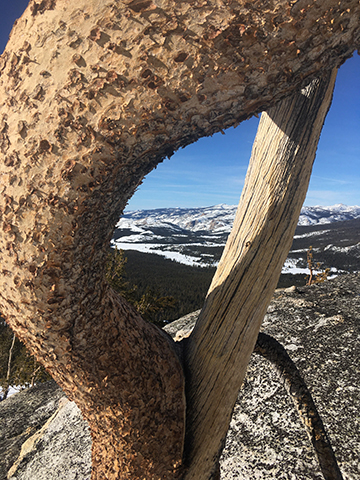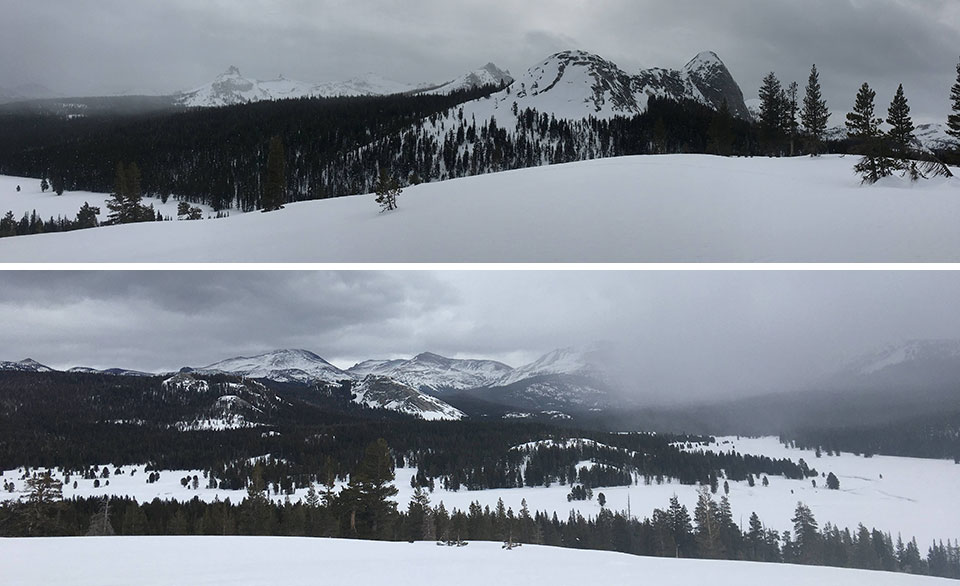New Snow: none
Settled Snow Depth: 53 inches
High temperature: 47°F (January 6)
Low temperature: -7°F (January 8)

Ski Conditions and Weather
The warm and windy days this week transformed the snow surface according to aspect and elevation. It is a grab bag out there: wind crust, sun crust, breakable, supportable, soft, hard, ice. The melt-freeze cycle has improved touring conditions, however. No more ducking from ice and snow bombs falling from the trees and not so much scraping snow off the skis.
Avalanche and Snowpack Conditions
Please refer to the Eastern Sierra Avalanche Center (ESAC) for the avalanche advisory for this part of the Sierra Nevada.
The avalanche hazard is presently low, but beware of ice, loose wet snow and/or rockfall when the sun hits those solar aspects. Isolated pockets of wind slab may exist in the alpine terrain.
Snow Travel Tip
Although most travelers access Tuolumne Meadows via Tioga Road in winter, without grooming it should be considered off piste. With high winds and deep snow, in places even along the road corridor most skiers prefer more than skinny cross-country skis and bindings. Along with a shaped, metal edged fish scale ski, we prefer either a telemark or AT (Alpine Touring) binding. We recommend the lightest boots and bindings within one’s price range. It is personal preference as to whether the binding is “releasable” as most lighter telemark bindings are not (there is a hybrid version out there that is). It can be advantageous in certain situations for a binding to release such as in an avalanche or a twisting fall or impact but there are exceptions where one absolutely does not want to lose a ski such as in more extreme, consequential mountainous terrain. Last but not least, comfort is key. Wear your ski boots around before embarking on a long tour. We have seen many visitors make such an effort to get here only to have their feet mangled by their ski boots. Don’t forget the blister (aka “second skin”) pads just in case!

Wildlife
The birds too seem to keep a low profile during the stormy and frigid days of winter. But, with the mercury hitting 47°F this week—the warmest day in a month—the birds were more vocal and active. Flocks of red crossbills flitted about in the lodgepoles, mountain chickadees, white breasted nuthatches, pine siskins and brown creepers could be heard chatting up their companions. Even a pair of ravens (which have been elusive this winter) have returned to govern the Tuolumne Meadows area.
Questions
The wilderness is open! But, especially during this pandemic where local resources may be limited, we implore you to be self-sufficient and not put others at risk. Please #RecreateResponsibly by planning and preparing thoroughly for your outdoor activities in the park.
Read through the following two pages before embarking on any day or overnight snow travel within this park:
You may contact us with any additional winter Tuolumne Meadows related questions.
Happy Touring!
Laura and Rob Pilewski - Tuolumne Meadows winter rangers

